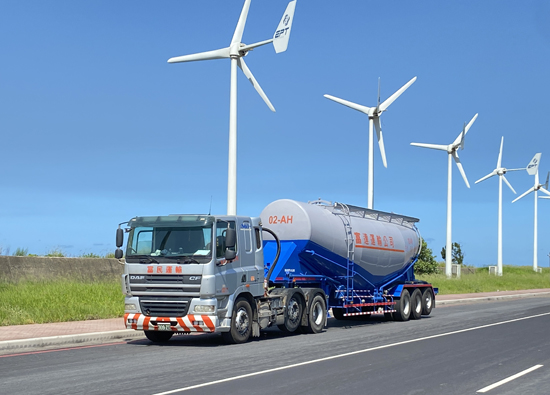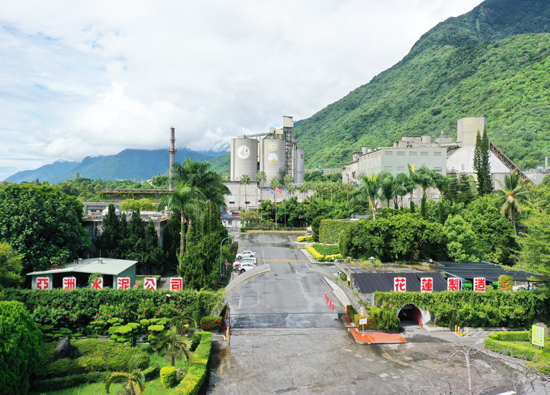08.2023 Cover Story
U-Ming Marine Transport, a pioneer in green ships, navigates a sustainable future
Far Eastern Magazine / Editorial Room

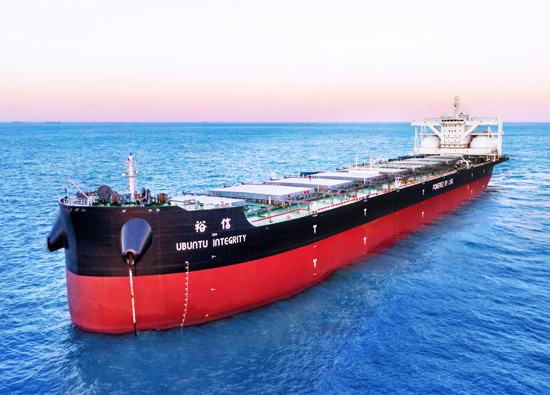
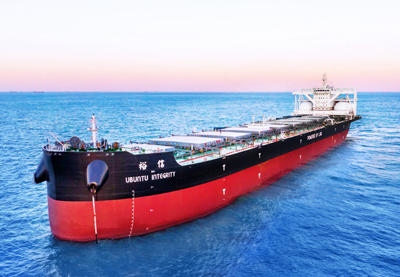 The International Maritime Organization's (IMO) Ship Carbon Intensity Index (CII) officially launched its program on January 1st this year, and coincidentally, the Ship Efficiency Index (EEXI) also hit the road this year... The long brewing perpetual storm is causing huge waves in the ocean. How can U-Ming Marine Transport, located at the center of the storm, stabilize its rudder, accelerate low-carbon transformation, and steer towards a sustainable future?
The International Maritime Organization's (IMO) Ship Carbon Intensity Index (CII) officially launched its program on January 1st this year, and coincidentally, the Ship Efficiency Index (EEXI) also hit the road this year... The long brewing perpetual storm is causing huge waves in the ocean. How can U-Ming Marine Transport, located at the center of the storm, stabilize its rudder, accelerate low-carbon transformation, and steer towards a sustainable future?Clean up the old and replace the new to build a green fleet
 U-Ming Marine Transport has been implementing a ship scrapping and refurbishment program since 2013, deploying and customizing a series of new energy-saving ships in advance, and continuously expanding its fleet. From 2022 to 2025, a total of 14 new energy-saving ships have joined the operation, with a current capacity of 72 ships and a total load capacity of 8.77 million tons. Environmental protection and youth are the two major competitive advantages of U-Ming Marine Transport. 94% of the fleet belongs to environmentally friendly ships, which is much higher than the market average of 32%; The average age of the ship is 5.5 years, which is also lower than the average age of 11.6 years in the bulk shipping market. In the future, the fleet size will continue to be expanded, and it is expected to achieve the dual growth goal of a total of 100 ships and a total deadweight ton exceeding 10 million tons.
U-Ming Marine Transport has been implementing a ship scrapping and refurbishment program since 2013, deploying and customizing a series of new energy-saving ships in advance, and continuously expanding its fleet. From 2022 to 2025, a total of 14 new energy-saving ships have joined the operation, with a current capacity of 72 ships and a total load capacity of 8.77 million tons. Environmental protection and youth are the two major competitive advantages of U-Ming Marine Transport. 94% of the fleet belongs to environmentally friendly ships, which is much higher than the market average of 32%; The average age of the ship is 5.5 years, which is also lower than the average age of 11.6 years in the bulk shipping market. In the future, the fleet size will continue to be expanded, and it is expected to achieve the dual growth goal of a total of 100 ships and a total deadweight ton exceeding 10 million tons.The issue of sustainable zero carbon emissions is currently a global trend. Taking the implementation of the International Maritime Organization's (IMO) Ship Carbon Intensity Index (CII) and Energy Efficiency Index (EEXI) two major carbon emission environmental regulations as an example, shipping companies that cannot meet the standards will face high costs, which will also affect the global decision of shipping companies to replace old ones with new ones and the market supply and demand situation.
As a global citizen, U-Ming Marine Transport has long foreseen the need for Carbon footprint management and monitoring systems, eliminating old ships, keeping the fleet young, and striving to build high-quality energy-saving ships. The new ship is fully equipped with the most advanced MAN B&W low-speed main engine, installed with deflectors and vortex fins, and uses environmentally friendly low resistance paint as the hull coating to reduce navigation resistance and optimize transportation efficiency. The overall energy efficiency design index (EEDI) of the new shipbuilding team is higher than the 25-40% required by the International Maritime Organization (IMO) baseline standard, and its rating ranks among the top 20% of the global bulk vessel energy efficiency index. In 2016, the company cooperated with a third party to develop the Fleet Safety management system (FSM), which facilitates the company's management personnel to master the real-time navigation information of each ship in the ship operation center, supervise the safety status of main equipment and engine performance data, reduce the impact of bad weather, ensure that ships take the best route, accurately control the ship's sailing speed and arrival time, so as to reduce fuel consumption, reduce costs, and achieve carbon reduction at the same time.
In addition, during the engine combustion process of ships, in addition to carbon dioxide, sulfur dioxide and nitrogen oxides are also produced. Controlling ship speed can effectively reduce the emissions of air pollution sources. In addition, many marine organisms rely on sound for feeding or communication. When ships are traveling at high speeds, the noise emitted by propellers and engines is bound to cause interference. Proper deceleration can reduce the noise harm to marine organisms. According to statistics, in 2022, U-Ming Marine Transport reduced its carbon emissions by nearly 11% compared to the previous year under the operating mode of reduced speed navigation, achieving the benefits of reducing operating costs while protecting the marine environment.
Fuel Transformation Strives for Zero Carbon Business Opportunities
In addition to using software and hardware equipment to reduce fuel consumption, considering that the main carbon emissions of ship navigation come from fuel, if traditional fuels are continued to be used, the goal of net zero emissions will not be achieved. Therefore, the U-Ming Marine Transport plan starts with fuel selection. However, at present, the technology and supply of many Alternative fuel are not yet mature, and the construction period of general large-scale merchant ships is up to 2-3 years. For ship owners, the risk of investing a large amount of money to build ships powered by Alternative fuel is quite high.
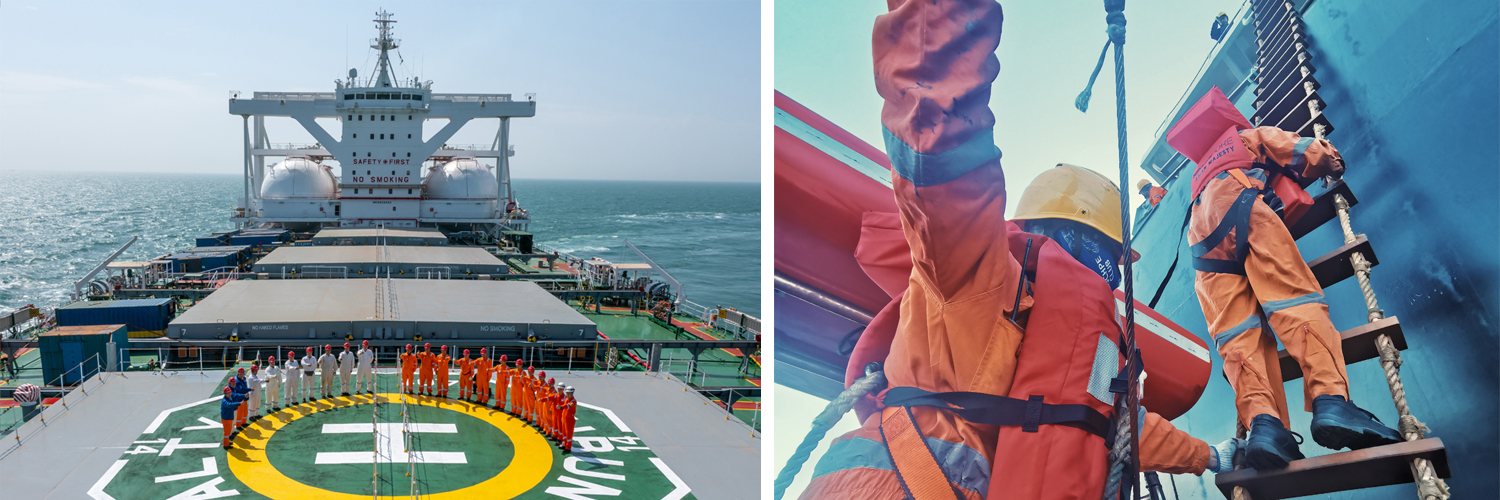 In 2020, U-Ming Marine Transport, after a complete survey, believes that liquefied natural gas (LNG, The carbon cost of energy-saving and low-carbon ships is relatively low, and they have high competitiveness in the market. After careful assessment, U-Ming Marine Transport resolutely signed a 10-year long-term transport contract with the miner Anglo American plc. When the ship price was low, it ordered LNG dual fuel bulk carriers, becoming one of the first bulk shipping companies in the world to use LNG fuel power; At current prices, the cost of the same type of ship is about 25% higher. The four LNG dual fuel bulk carriers have fully put into operation in the first half of 2023, bringing stable revenue to U-Ming Marine Transport while also reducing carbon emissions by approximately 25% per vessel.
In 2020, U-Ming Marine Transport, after a complete survey, believes that liquefied natural gas (LNG, The carbon cost of energy-saving and low-carbon ships is relatively low, and they have high competitiveness in the market. After careful assessment, U-Ming Marine Transport resolutely signed a 10-year long-term transport contract with the miner Anglo American plc. When the ship price was low, it ordered LNG dual fuel bulk carriers, becoming one of the first bulk shipping companies in the world to use LNG fuel power; At current prices, the cost of the same type of ship is about 25% higher. The four LNG dual fuel bulk carriers have fully put into operation in the first half of 2023, bringing stable revenue to U-Ming Marine Transport while also reducing carbon emissions by approximately 25% per vessel.Jointly building sustainable waterways in line with global standards
U-Ming Marine Transport not only focuses on environmental aspects, but also deepens its sustainable tentacles to the social level. It hopes to lead employees and supply chain partners to grow together, and integrate these concepts into the company's governance strategy, becoming the main axis of business. Therefore, on the one hand, train existing crew members to familiarize themselves with LNG fuel ships and obtain service certificates, ensuring that workers receive fair and reasonable treatment during the process of enterprise transformation. On the other hand, self establish low-carbon development performance indicators (KPIs) and sign "sustainable linked loans" with multiple banks. As long as the KPIs are met, they will enjoy support from bank preferential interest rates. Currently, the total cumulative amount has exceeded USD 300 million, Bringing new business opportunities and competitiveness to enterprises.
At the same time, U-Ming Marine Transport also actively participates in climate related initiatives, such as the "1.5 ° C Climate Action Declaration" of the Chamber of Commerce and Industry, the "R20 Climate Action Regional Organization" climate initiative, the Carbon Disclosure Plan (CDP) questionnaire, and the Getting to Zero Coalition. From Taiwan to the international community, U-Ming Marine Transport works with supply chain partners to share information, resources, innovation, and risks, Make every effort to combat climate change.
U-Ming Marine Transport's efforts in low-carbon transformation and practicing sustainable homes have been highly recognized by various sectors, not only winning recognition from many business partners, but also receiving several awards for Taiwan Corporate Sustainability Award. It has also been listed in the FTSE4Good Emerging Index and Taiwan ESG Index, And the combined consistent stock of Yuanda Taiwan ESG Sustainable ETF (00850). In the future, we will continue to track the trend of international ship transformation, the progress of research and development of Alternative fuel marine engines, the completeness of the supply chain, and other auxiliary propulsion devices (such as wind assisted propulsion systems), so as to leave a better environment for the next generation, and expand our reach, cooperate with tenants and supply chain partners, and actively carry out low-carbon transformation. Although 'net zero carbon emissions' is not easy, U-Ming Marine Transport is ready and ready to go.
#


